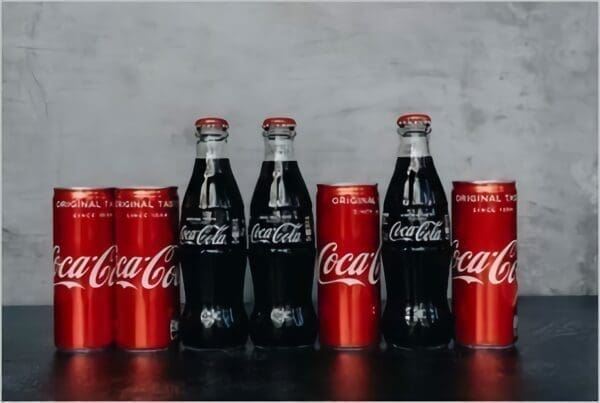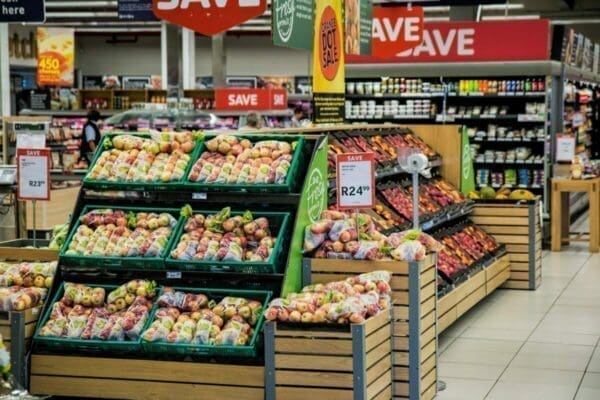The New HFSS Foods Legislation? What it Means…
As part of the government’s intention to combat childhood obesity, new HFSS legislation is proposed to end the promotion of products with a high content of sugar, fat, and salt by price (eg. BOGOF promotions and reductions). As well as locations where such products can be found both in-store and online.
Which Promotions are Affected?
All volume promotions such as “multibuy” and “extra free” as well as free refills of sugar-sweetened drinks in the out-of-home sector.

Which Retailers Does This Apply to
- Businesses employing 10 or more people.
- Store locations with sales area in excess of 2,000 ft² (185.8m²).

Are Any Retailers Exempt?
- Micro businesses employing fewer than 10 people.
- Small businesses employing between 10 and 49 people.
- Specialist retailers which only sell one type of product from the specified list (eg. Chocolatiers, Bakers etc.) – for product location only.
- Stores with sales areas less than 2,000 ft² (185.8 m²).

Sticky Learning ® is 7 times more effective than 1-day training courses. Plus, you will get a Chain of Evidence proving your Return on Investment. Discover soft skills training that changes behaviours long term.

Which Products Apply?
- Pizza
- Chocolate confectionary
- Soft drinks with added sugar
- Sugar confectionary
- Ice-cream’s
- Cakes
- Yogurts
- Pudding & dairy products
- Breakfast cereal
- Morning good’s (Pastries)
- and many more…
Similar HFSS Foods Restrictions From Around the GLOBE
Netherlands
Our Netherlands team has also been following similar legislation. However, they have been concentrating on B.W.S (Beer’s, wines, and spirits). Whilst also having strong rules in place for the selling of tobacco.
- Supermarkets are allowed to sell alcoholic drinks with an alcohol content of up to 15 %.
- Supermarkets may only sell these to people who are over 18 years of age.
- An exception to this is wine (including port and sherry). Because these drinks are weakly alcoholic, even if the alcohol percentage is above 15%.
- There are also rules for the arrangement of drinks in supermarkets. For example, alcohol may not be placed too close to soft drinks.

Fewer Tobacco Outlets
The further reduction of points of sales of tobacco and related products will take place in a few steps in the coming years:
- 2022 Ban all cigarette vending machines, for example in cafes and snack bars.
- 2023 Ban the online sale of tobacco.
- 2024 Ban tobacco sales at supermarkets
France & Belgium
Our France & Belgium team have also been following similar legislation. For example, The Public Health Act of 9 August 2004 only requires advertisers to include health messages suggesting the adoption of healthy dietary and physical activity behaviors in certain advertisements. Like those promoting processed foods or non-alcoholic drinks containing added sugar, salt or artificial sweeteners.
In addition to the health messages, Santé Publique France proposes to display a banner indicating the Nutri Score for products with a Nutri Score D and E and the brands associated with these products.

Italy, Spain, and Germany
Italy has started the beginning process of creating legislation to tackle HFSS also. Their objective was to put something similar in place that France and Belgium have which is the Nutri score. But because of Covid-19, the legislation has been put on hold.

For Spain and Germany, it is not a leading problem in their communities. Therefore, they are not at this moment in time looking to take any action.
Ireland
In October 2013, the Government approved a comprehensive suite of measures to reduce excessive patterns of alcohol consumption and resultant social, economic, and health harms as set out in the NSMS including the drafting of a Public Health (Alcohol) Bill.
The Primary Policy Objectives of the Legislation are to:
- Reduce alcohol consumption to 9.1 litres of pure alcohol per person per annum by 2020.
- Delay the initiation of alcohol consumption by children and young people.
- Reduce the harms caused by the misuse of alcohol.
- Regulate the supply and price of alcohol in order to minimise the possibility and incidence of alcohol-related harm.
Separation and Visibility of Alcohol Products and Advertisements for Alcohol Products in Specified Licensed Premises
- An area of the shop separated by a physical barrier which has a minimum height of not less than 1.2 metres. Through which alcohol and advertisements for alcohol are not visible.
- Enclosed are adjacent storage units on the shop floor in which the products are not visible up to a minimum height of 1.5 metres.
- A maximum of three adjacent units, each of 1 metre width and 2.2 metres high.
Wanzl’s Solution
Our quick and specified solutions allowed our customers to meet the 6-month deadline before the legislation had taken place. So this meant, avoiding fines of up to €250,000 or imprisonment for a term not exceeding 3 years or both.
Finland, Norway, and Sweden
- Tobacco products are now hidden away behind blinds, sliding doors, under the counters or automatic vending systems are being used.
- Medicine in closed cabinets with glass doors and locks/handles in a height, where children cannot reach.
- Sales of unhealthy foods are being regulated through taxes making them (more) expensive.
Australia’s Different State Guidelines
Victoria
- Must be a dedicated area to sell alcohol but does not have to be a store in store concept.
- In the smaller stores, it is called a red line where alcohol can be sold beyond that point.
- They have branded bottle shops that are at the entrance of the store.
- These bottle shops have their own entrance and exit (often within the supermarket).
- These bottle shops also have their own cash registers.
New South Wales
- Must be a Store within a store concept.
- Aldi has a barricaded area for consumers.
- This area has its own checkout.

Queensland
- Supermarkets cannot sell liquor.
- Bottle stores attached to pub or club.
South Australia
- Completely separate premises attached to the store
- Cannot enter through the store.




